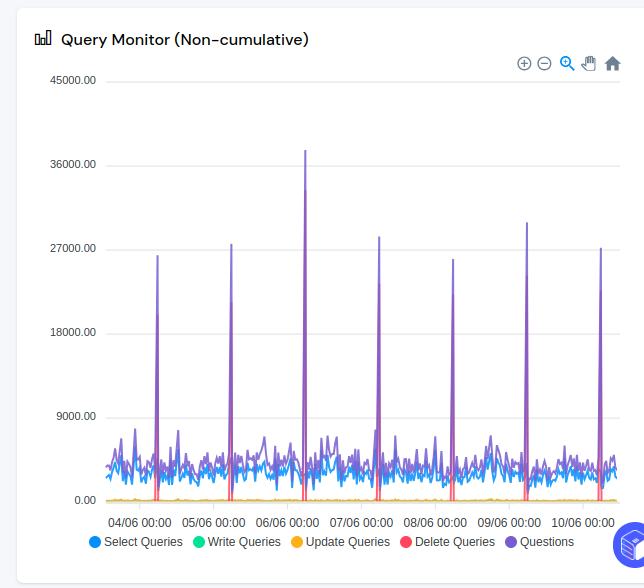Query Monitor | Product Documentation
The newly introduced “Query Monitor” in the server panel offers a valuable tool for monitoring database activity. This feature provides real-time insights into the various types of queries processed by the database server. By updating every 15 minutes, it keeps administrators informed about the workload and performance of the database. This comprehensive monitoring capability enables administrators to quickly identify any unusual spikes or patterns in query activity, allowing them to optimize server resources and troubleshoot potential issues promptly. Overall, the Query Monitor enhances the server panel’s functionality by providing essential metrics for maintaining database efficiency and performance.
- Questions: This term might represent a broad category encompassing various types of queries aimed at retrieving data or information from the database.
- Select Queries: These are queries used to retrieve data from one or more tables in a database.
- Update Queries: Update queries are used to modify existing data within a database.
- Delete Queries: Delete queries are used to remove rows or records from a table in a database.
- Write Queries: This term could refer to a broader category of queries that involve any form of data modification or writing to the database.
This monitor can be especially useful if you encounter unexpected traffic on your server. The example given below is from one of the servers in ServerKade’s network.

Based on this chart, I can provide observations about the queries and it’s status.
The ‘blue’ series indicates the count of select queries executed in your server’s database. Similarly, the ‘red’ series denotes delete queries, while the ‘yellow’ series represents update queries. Additionally, the ‘green’ series signifies write queries, and the ‘violet’ series pertains to questions. Depending on your application and its database, you can monitor and analyze the queries processed by your server’s database.






